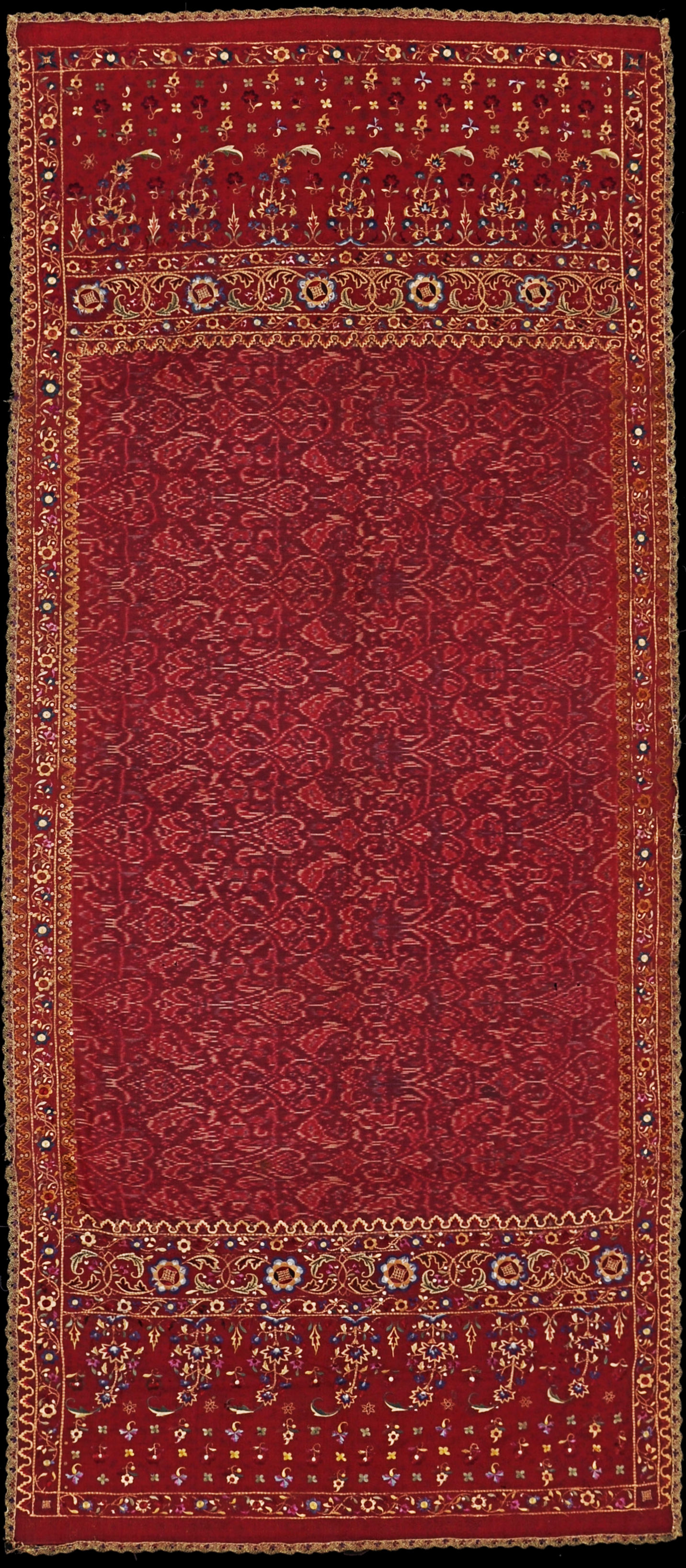| |
 mouse over to magnify mouse over to magnify
| | | | 205 Sumatra, Palembang
Limar (shawl)
| | Locale: | Palembang. | | Period: | 18th-19th c. | | Panels: | 1 | | Design: | Limar ankinan from Palembang. Field decorated in traditional pattern used on Banka and in Palembang on Sumatra, plain end fields and longitudinal borders decorated in silk and gold thread embroidery. Central field, badan, decorated in ikat with motifs that represent highly stylized Garuda wings - intentionally made unrecognizable as Islam forbids depiction of people and animals. Entire cloth is finished with fine loops done in couching with gold thread. | | Size: | 84.5 x 204 cm (33.2 x 80.3 in) | | Weight: | 235 g (136 g/m2) | | Yarn: | Silk, hand-spun | | Comment: | Most Palembang limar are decorated with borders in gold brocade, songket. This type, done in embroidery, sulam, or ankinan as it is called in the local vernacular of Palembang, is very rare and probably stopped being made early in the 20th C. Palembang silk embroidery is a holdover from ancient times, when there existed a strong link between Chinese rulers and the court of Palembang, a bond continually fortified by gifts of young Chinese concubines to the Sumatran princes. The tear shaped border design is a feature seen also on limar that are done in embroidery only. | | Background: | Additional information in chapters on Sumatra and Palembang. | | Published: | Ikat Textiles of the Indonesian Archipelago, 2018.
| | Compare: | 069 070 147 | | Sources: | Near-identical to limar ankinan dated 'probably 18th C.' in Yale Art Gallery, Nr. ILE2006.4.145, depicted in Barnes's contribution to Textiles Asia, Vol. 6, Issue 1, 2014; and to example in Barnes and Hunt Kahlenberg, Five Centuries of Indonesian Textiles, p. 96/97.Similar limar ankinan in Australian National Gallery, depicted in Maxwell, Textiles of Southeast Asia. Fig, 368. p. 253. Origin of silk embroidery in Palembang, idem, p. 253. Similar piece (owner unknown) on website of online East Indies Museum IDN: 79-2249-1085. Example dated 1875 in former Wereldmuseum collection, WM-2234, with markedly different field. Similar piece dated 'before 1878' in collection Volkenkunde, RV-300-325. | | |
 ©Peter ten Hoopen, 2025
All rights reserved.
|
|


